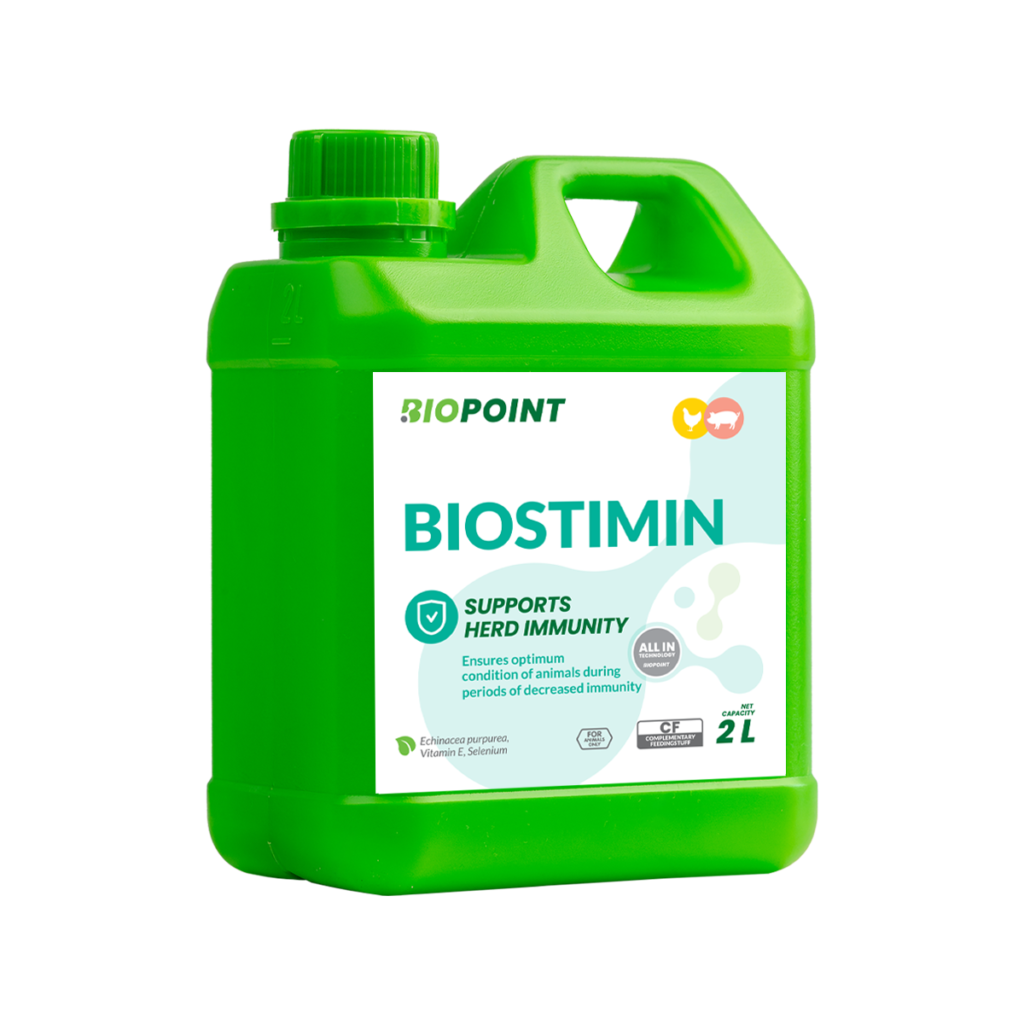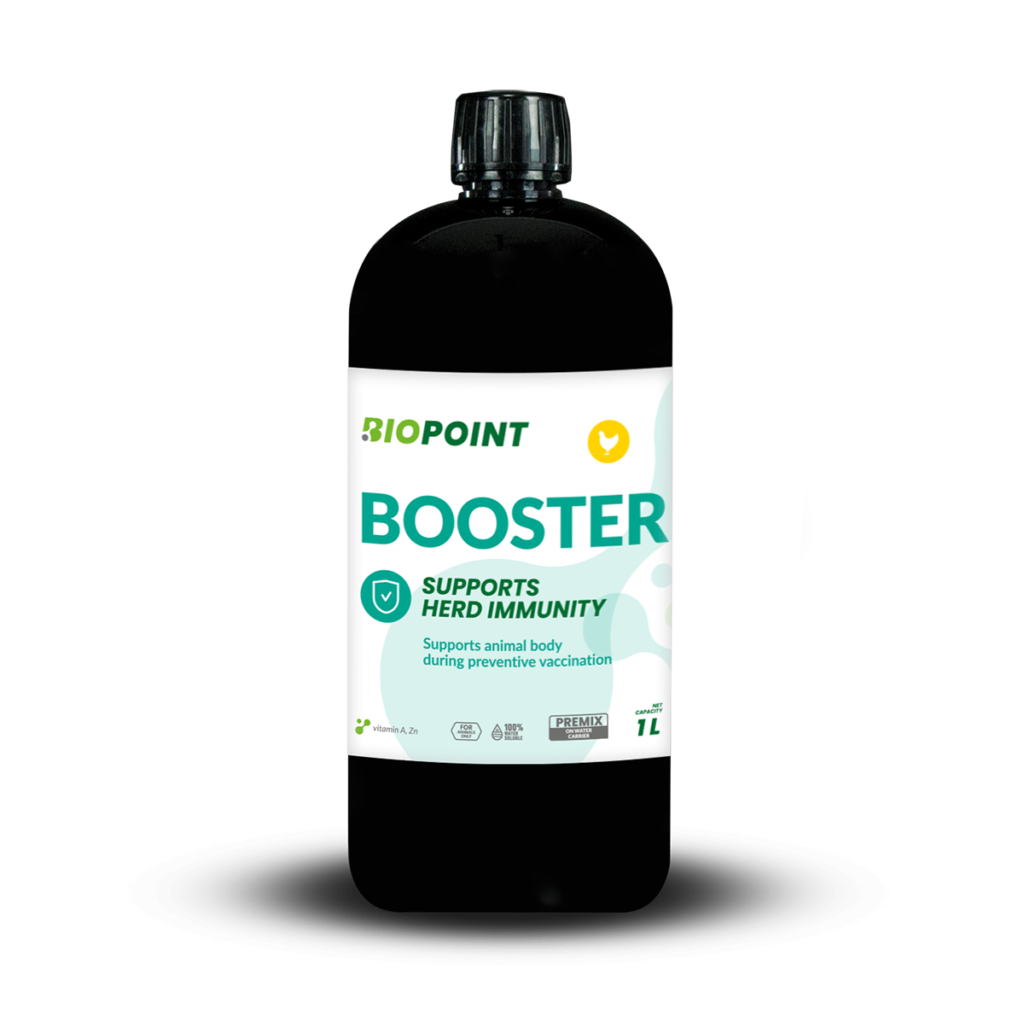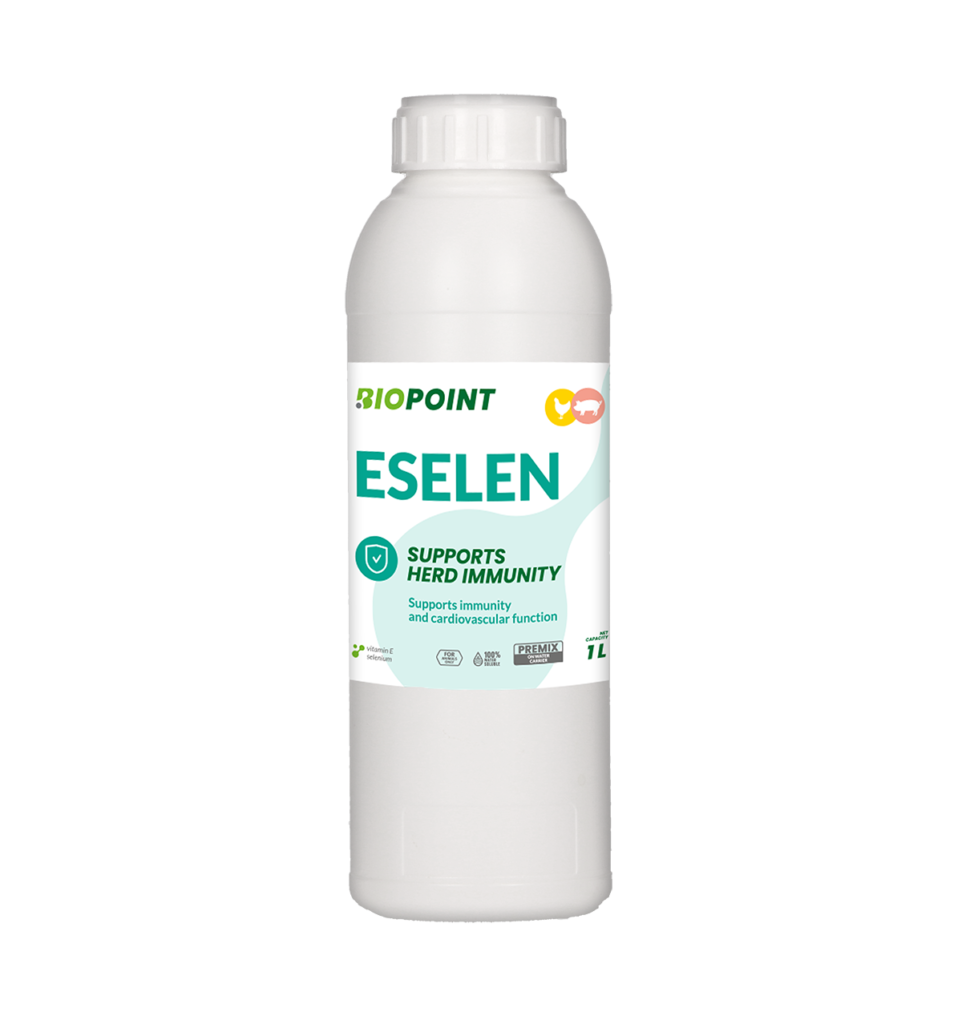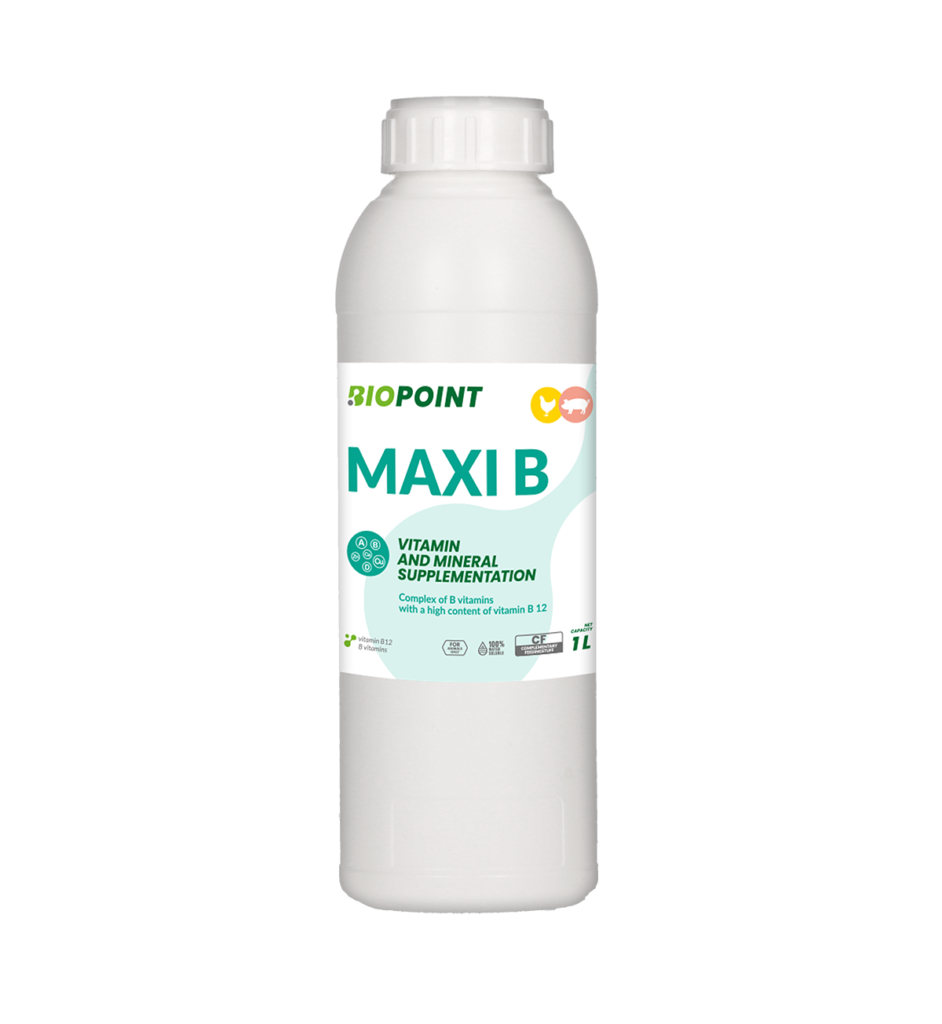
Herd immunity – Poultry
Ask about the product
BioPoint - support for poultry herd immunity
At the core of sustainable poultry farming lies the health and immunity of the flock. Herd immunity in poultry is not just a benefit; it's a necessity. It shields the entire flock from the spread of infectious diseases, reducing outbreaks and enabling a stable, productive farm environment. Understanding the dynamics of herd immunity and implementing strategic measures to enhance it can significantly impact overall poultry health and productivity.
The foundation of herd immunity
Herd immunity in poultry refers to the resistance to the spread of infectious diseases within a flock when a sufficient number of birds are immune to the disease. This can be achieved through natural immunity from previous infections or more effectively through vaccination. The concept relies heavily on the percentage of immunized birds within the population, which can prevent disease agents from finding susceptible hosts, thus breaking the chain of transmission.
Importance of vaccination
Vaccination plays a pivotal role in establishing herd immunity. It is one of the most effective methods to prevent disease outbreaks in poultry farms. By vaccinating birds, we not only protect them against specific pathogens but also reduce the overall load of pathogens capable of infecting other birds. A well-planned vaccination schedule, tailored to the specific needs and risks faced by the flock, is essential for maximizing this protective barrier.
Biosecurity measures
Alongside vaccination, stringent biosecurity practices are crucial in supporting herd immunity. These include controlling access to poultry houses, maintaining clean water and feed supplies, regular cleaning and disinfection of facilities, and proper waste management. Each of these measures helps reduce the risk of introducing new pathogens into the flock and supports the overall health and immunity of the birds.
Nutritional support
Optimal nutrition is fundamental in maintaining a healthy immune system in poultry. A balanced diet fortified with essential nutrients, vitamins, and minerals enhances the birds' natural defenses against diseases. Additionally, the use of probiotics and prebiotics can promote a healthy gut microbiome, which plays a critical role in immune function.
Monitoring and surveillance
Continuous monitoring and surveillance of flock health are vital for detecting early signs of disease and assessing the effectiveness of the implemented herd immunity strategies. Regular health checks, disease diagnostics, and mortality monitoring should be integral parts of the health management system. These practices help in timely decision-making and adjustments in herd management protocols.
Challenges to herd immunity
While the goal is to achieve optimal herd immunity, several challenges can impede this objective. These include variations in vaccine efficacy, improper vaccination techniques, and the emergence of new pathogenic strains. Furthermore, environmental stressors such as extreme weather conditions, inadequate housing, and overcrowding can compromise the immune response of the birds.
The role of technology
Advancements in technology offer promising tools to enhance herd immunity in poultry farms. Precision farming technologies, including automated feeding and watering systems, climate control, and health monitoring sensors, can provide optimal living conditions for poultry, which is conducive to maintaining strong immunity. Additionally, data analytics and machine learning can predict outbreak risks and optimize vaccination schedules based on real-time data.
Conclusion
Enhancing herd immunity in poultry is a multifaceted approach that requires a combination of vaccination, stringent biosecurity, optimal nutrition, regular monitoring, and the integration of advanced technologies. By prioritizing the health and immunity of the flock, poultry farmers can ensure the sustainability and productivity of their farming operations. Embracing these strategies will lead to healthier flocks, higher yields, and a more robust defense against diseases.




